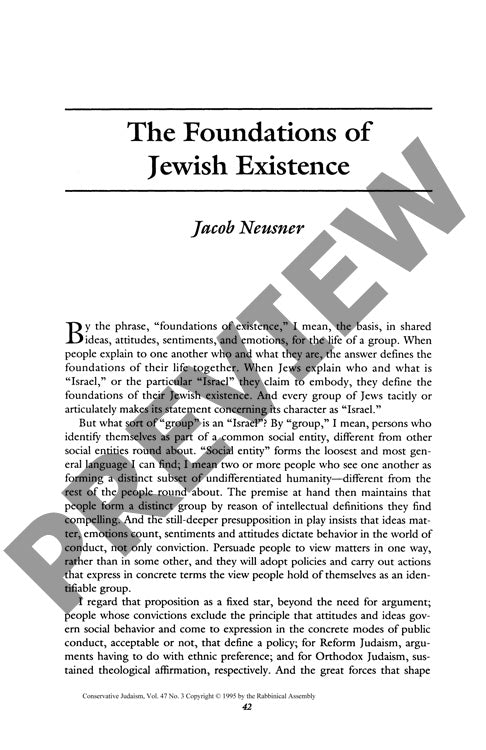The Foundations of Jewish Existence
Couldn't load pickup availability
Abstract This article examines the foundational concepts that define Jewish existence by analyzing three distinct formulations of "Israel" in contemporary Jewish life. Using a theoretical framework that emphasizes the primacy of ideas and attitudes in shaping group identity, Neusner identifies three competing models: Zionism (defining Jews as a political entity centered on the State of Israel), Orthodox Judaism (conceptualizing Jews as a holy people bound by Torah), and Reform Judaism/American Judaism (characterizing Jews as an ethnic group with shared cultural experiences). The methodology employs comparative analysis of these ideological frameworks and their practical manifestations in Jewish communities worldwide. The study distinguishes between exterior structures of Jewish existence (political participation, institutional life, and relationship to Israel) and interior structures (personal attitudes, emotions, and religious conviction). Key findings reveal that the ethnic model, despite its prevalence among diaspora Jews, suffers from fundamental weaknesses: increasing intermarriage rates, lack of compelling shared experiences, and absence of distinctive cultural markers such as common language. The analysis demonstrates that ethnic Judaism relies heavily on Holocaust memory and emotional appeals rather than concrete imperatives. Neusner concludes that among the three foundations, the nationalist (Zionist) and religious (Orthodox) models prove more durable and coherent than the ethnic model, which he characterizes as theoretically flawed and sociologically unsustainable for long-term Jewish continuity.

More Information
-
Physical Description
-
Publication Information
Published 1995
ISBN
-
Publication Credits
Jacob Neusner

